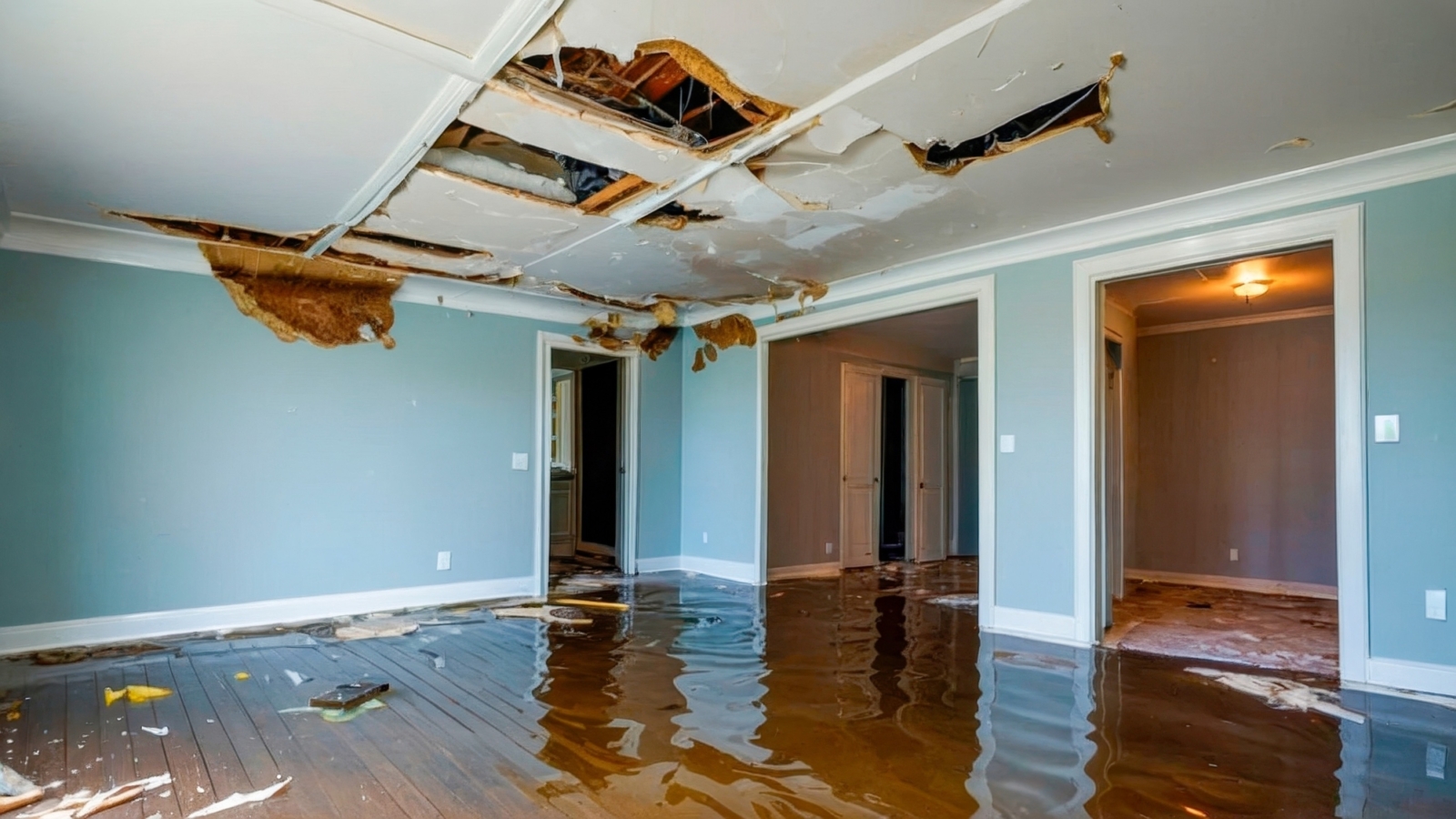What Happens to Your Foundation When Your Basement Floods?

A flooded basement is every homeowner’s nightmare. Beyond the immediate inconvenience and damage to belongings, a basement flood can have long-term implications on the structural integrity of your home. One of the most significant concerns is the potential damage to your foundation. Understanding what happens to your foundation when your basement floods can help you take proactive measures to prevent serious damage and ensure the longevity of your home.
Causes of Basement Flooding
Before understanding the effects on your foundation, it’s essential to understand the common causes of basement flooding:
- Heavy Rainfall: Excessive rain can saturate the soil around your home, increasing hydrostatic pressure and leading to water infiltration.
- Poor Drainage: Inadequate drainage systems, such as clogged gutters or downspouts, can cause water to accumulate around the foundation.
- Sump Pump Failure: A malfunctioning sump pump can fail to remove excess water, leading to a flood.
- Cracked Foundation: Cracks in the foundation walls or floor can allow water to seep into the basement.
- Plumbing Leaks: Burst pipes or faulty plumbing can cause significant water damage.
Understanding these causes can help in taking preventive measures to protect your basement and foundation.
Immediate Effects of Basement Flooding
When a basement floods, the immediate effects are often visible and disruptive. These include:
- Water Damage to Belongings: Furniture, appliances, and personal items can be damaged or destroyed.
- Mold Growth: Standing water and high humidity levels create an ideal environment for mold and mildew to thrive, posing health risks.
- Electrical Hazards: Water and electricity are a dangerous combination. A flooded basement can create electrical hazards, especially if the water reaches electrical outlets or appliances.
- Unpleasant Odors: Stagnant water can produce foul odors, making the basement unpleasant and potentially impacting indoor air quality.
While these effects are concerning, the underlying impact on the foundation can be even more detrimental.
Long-Term Impact on Your Foundation
- Soil Erosion and Settlement: When your basement floods, the water can cause soil erosion around your foundation. This erosion can lead to settlement issues where the foundation begins to sink unevenly. As the soil shifts, it can create voids or gaps, compromising the stability of your home. Over time, this settlement can lead to structural problems, including cracks in walls and ceilings, uneven floors, and doors or windows that no longer close properly.
- Hydrostatic Pressure: One of the most significant threats to your foundation during a flood is hydrostatic pressure. This pressure is the force exerted by the water in the soil surrounding your foundation. When the water table rises due to flooding, the increased hydrostatic pressure can push against the foundation walls and floor. This pressure can cause:
- Wall Cracks: The pressure can create horizontal or vertical cracks in the foundation walls, allowing more water to seep in and exacerbating the flooding.
- Bowing Walls: In severe cases, the pressure can cause the walls to bow inward, leading to structural instability.
- Foundation Cracks: Cracks in the foundation are both a cause and an effect of basement flooding. Existing cracks can allow water to enter the basement, while the stress of flooding can create new cracks. These cracks can expand over time, further weakening the foundation and increasing the risk of future flooding.
- Damage to Foundation Materials: Foundations are typically constructed from materials like concrete, cinder block, or stone. Prolonged exposure to water can degrade these materials:
- Concrete: Although concrete is relatively resistant to water, prolonged exposure can lead to spalling, where the surface of the concrete flakes off. This can weaken the structure over time.
- Cinder Block: Water can enter the hollow cores of cinder blocks, leading to internal damage and reducing their strength.
- Stone: Water can erode the mortar holding stone foundations together, compromising their integrity.
- Increased Risk of Frost Heave: In colder climates, basement flooding can lead to frost heave. When water in the soil freezes, it expands and exerts upward pressure on the foundation. This can cause the foundation to lift and crack. Repeated cycles of freezing and thawing can exacerbate this problem, leading to significant structural damage.
- Compromised Foundation Footing: The footing of your foundation is the base that supports the entire structure. Flooding can erode the soil around the footing, reducing its stability. If the footing is compromised, it can lead to uneven settling and structural issues throughout the home.
Preventing Basement Flooding and Foundation Damage
While the effects of basement flooding on your foundation can be severe, there are steps you can take to prevent flooding and minimize damage:
- Ensure Proper Drainage: Maintaining proper drainage around your home is crucial. Ensure that gutters and downspouts are clean and direct water away from the foundation. Consider installing a French drain system to divert water away from the basement.
- Seal Cracks and Waterproof the Basement: Inspect your foundation regularly for cracks and seal them promptly to prevent water infiltration. Waterproofing your basement walls and floor can provide an additional layer of protection against moisture.
- Install a Sump Pump: A reliable sump pump can help remove excess water from your basement before it causes significant damage. Consider installing a backup pump or a battery-operated model to ensure it functions during power outages.
- Grade the Landscape: Ensure that the landscape around your home slopes away from the foundation. This prevents water from pooling near the foundation and reduces the risk of flood damage.
- Regular Maintenance: Regularly inspect and maintain your home’s plumbing system to prevent leaks and bursts. Address any issues promptly to minimize the risk of water damage.
- Install a Backwater Valve: A backwater valve can prevent sewage from backing up into your basement during heavy rainfall or flooding. This can reduce the risk of water damage and contamination.
What to Do After a Basement Flood
If your basement does flood, taking swift action can help minimize damage to your foundation:
- Remove Water Quickly: Use a wet/dry vacuum, sump pump, or professional water removal service to remove standing water as quickly as possible. The longer water sits, the more damage it can cause.
- Dry the Area Thoroughly: After removing the water, use dehumidifiers, fans, and heaters to dry the basement thoroughly. This helps prevent mold growth and further water damage.
- Inspect for Damage: Once the area is dry, inspect the foundation for any new cracks or signs of damage. If you notice significant issues, contact a professional for an assessment and repairs.
- Clean and Disinfect: Clean and disinfect all surfaces affected by the floodwater. This helps prevent mold growth and ensures a healthy environment.
- Monitor for Mold: Keep an eye out for mold growth in the weeks following a flood. If you notice any signs of mold, address it promptly with mold remediation to prevent it from spreading and causing health issues.
When to Call a Professional
While some preventive measures and minor repairs can be handled by homeowners, there are times when it’s essential to call a professional:
- Structural Damage: If you notice significant cracks, bowing walls, or other signs of structural damage, contact a foundation specialist immediately.
- Severe Flooding: In the case of severe flooding, a professional water damage restoration service can help remove water and dry the area more effectively.
- Persistent Water Issues: If your basement continues to flood despite your efforts, a professional can help identify and address the underlying cause.
A flooded basement can have far-reaching effects on your home’s foundation. Understanding the potential damage and taking proactive measures can help protect your investment and ensure the structural integrity of your home. By maintaining proper drainage, sealing cracks, installing a sump pump, and regularly inspecting your foundation, you can minimize the risk of basement flooding and its associated damage. If you do experience a flood, swift action and professional assistance can help mitigate the impact and preserve the safety and stability of your home.
Why All Clean USA?
When a basement flood strikes, the aftermath can be overwhelming. Based in Arkansas, All Clean USA has been a trusted name in disaster restoration since 1993, founded by Brett Overman. With over 40,000 restoration projects completed, our expertise and dedication to becoming the industry leader in disaster recovery are unmatched.
With decades of experience, All Clean USA has the knowledge and cutting-edge techniques to handle any basement flood situation, no matter the scale. Our specialized Water Damage Remediation team works quickly and efficiently to extract standing water, minimizing immediate damage, and thoroughly dry affected areas to prevent further issues. We implement measures to stop additional water damage and use advanced equipment to detect and eliminate hidden moisture and mold, ensuring your basement is comprehensively restored.
Don’t let a basement flood ruin your property; trust the experts at All Clean USA to restore your home quickly and efficiently. Contact us today for immediate assistance.


